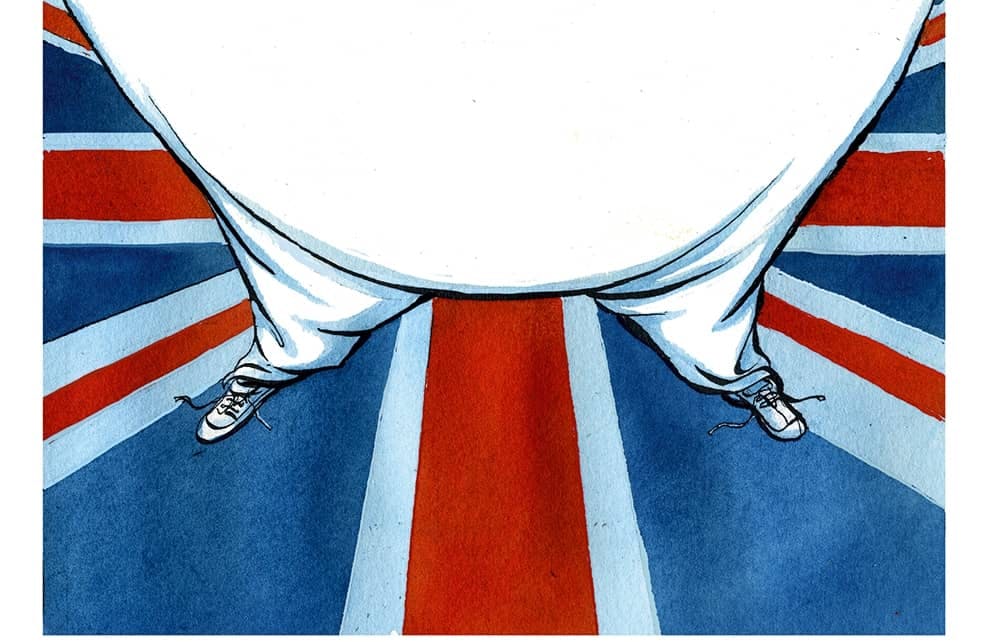Every afternoon, I witness the unedifying spectacle of teenagers waddling out of the comprehensive school on my street in south London. Many of the 14- and 15-year-olds appear to weigh the same as their age. Few manage to make it past the chicken shop without buying a box of deep-fried nuggets to share between them.
It crossed my mind that teenagers, cruel as they are, can no longer call a kid ‘Fatty’ (or ‘Tubs’ if they’re in private school). Shouting that in a playground would cause a Spartacus-esque reaction. In my school in the mid-1990s, being overweight was an oddity suffered by a maximum of two children in every year group. These days, it’s the skinny kids who are the exception.
I blame the parents. But I also have a hefty amount of criticism for those in the public health fraternities who continue to propagate the deeply patronising line that people from deprived backgrounds ‘can’t afford’ healthy food or that they’re ‘time poor’ to prepare it.
The Institute for Economic Affairs reported in 2017 that a kilo of bananas or carrots costs less than a single cheeseburger, while five portions of fruit and veg a day can be met for as little as 30p. OK, that was eight years ago. But, having just returned from my local Co-op, I can indeed confirm that a single banana is still cheaper than a single Snickers bar, and that a bag of mixed salad is cheaper than a bag of kettle chips. The same IEA study showed that healthy meals – let’s say, a dinner of chicken thighs, rice and veg – cost less than ready meals, sugary cereals and fast foods based on portion size.
As a state-school-educated northerner who spent his formative years in Middlesbrough and the hinterlands of Liverpool, I’m furious with the condescending manner in which people from my background are spoken to on the issue of obesity.
Stating that poorer people don’t have time to cook a healthy meal is inimical in the extreme. Open a bag of mixed salad, put it in a bowl and then boil some pasta. Sprinkle some basil and any old cheese on it. My guess is that you’ll be able to cook and serve this in fewer than 15 minutes.
Then go to a supermarket and read the cooking instructions on a stuffed crust pizza. That will take a solid 20 minutes in the oven and will cost you something in the region of £4, even if you’re shopping at Aldi or Lidl.
And yet, here we are, living in a nation whose collective belt buckle is at bursting point. Successive government attempts at intervention – from better school meals to colour-coded food packaging – have achieved precisely nothing over the past two decades. We’re still getting fatter, yet we’re told that a course of Wegovy will make us willowy again in weeks. So why not have another chocolate digestive or five?
Obesity is a disease of plenty, not of penury
We need to get tough on this. Obesity is a disease of plenty, not of penury. Anyone will take advantage of such excuses if they’re shared by those in authority. And excuses are what governments of both red and blue hues in this country have laid on, buffet style, for years.
Last week I spent the night in a budget hotel in Norwich. Watching the morning stampede for the breakfast buffet, I overheard a mother say to her five- or six-year-old daughter, ‘Make sure you get lots of mushrooms – that’s the kind of thing Mummy doesn’t have time to cook at home.’ The mother then helped herself to a full English and three muffins.
We’re in a disturbing place when a mother feels comfortable telling her children that cooking some mushrooms is simply too time-consuming. Yet the longer public health bodies persist in covering up the causes of obesity, the less likely it is that this young girl and her rare treat of simple mushrooms will grow into a healthy adult. Instead, she too will be reaching into the supermarket freezer for another stuffed crust.







Comments